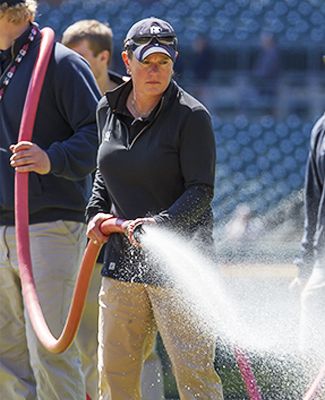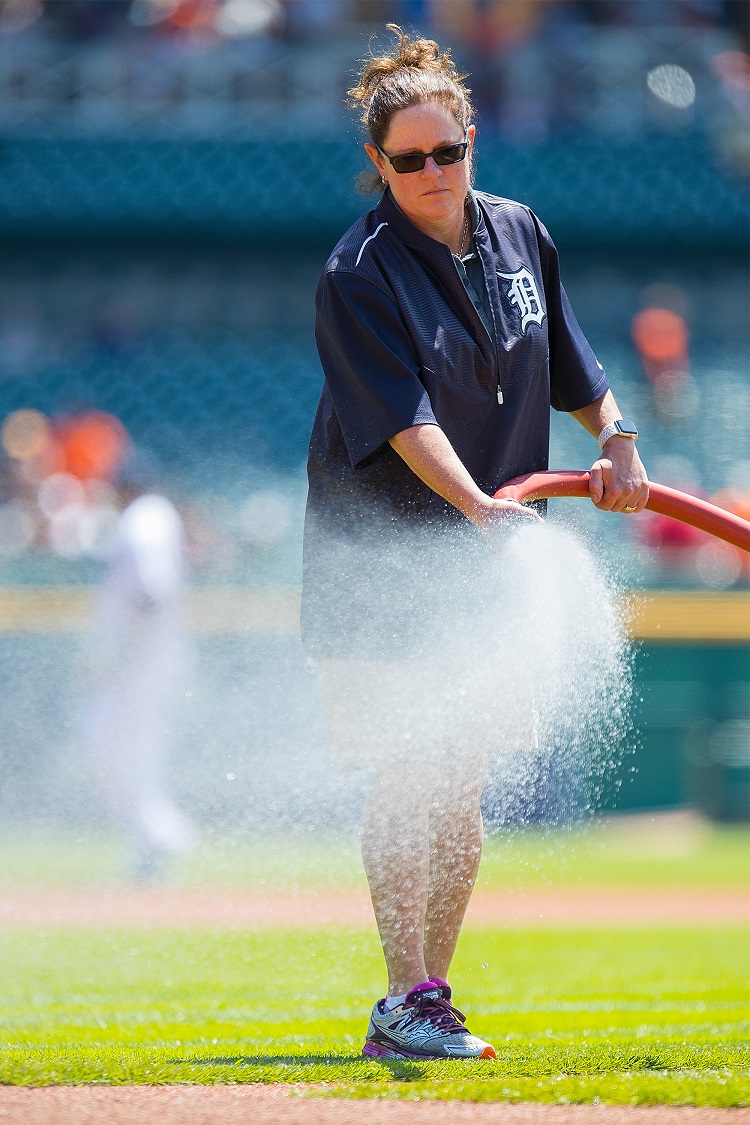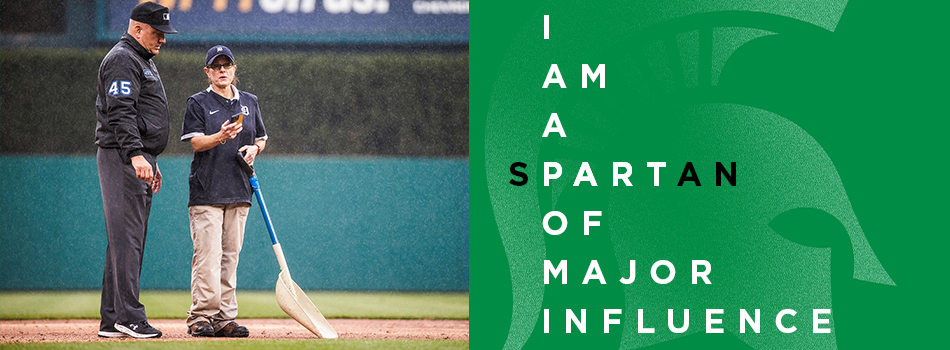Grateful for the Grass

Grateful for the Grass
Heather Nabozny: A Spartan of Major Influence
May 19, 2024Heather Nabozny learned to love grass at a young age. While growing up in Milford, Michigan, Nabozny worked alongside her dad at a lawn care company. That love eventually led her to East Lansing and MSU’s renowned turfgrass program.
“It gave me the fundamentals and building blocks for everything I’ve done,” she said. “They’ve stood behind me and supported me all along.”
While at MSU, Nabozny interned with the Spartan Athletics’ grounds team. With the help of her adviser, she connected with the Toronto Blue Jays and began her career at the organization’s spring training complex in Dunedin, Florida. After spending time with the West Michigan Whitecaps, a minor league team based near Grand Rapids, she became the first female head groundskeeper in Major League Baseball (MLB) history ahead of the 1999 season. And, to top it off, it happened to be a job with her favorite team.
“I grew up in Michigan and have always loved the Tigers,” said Nabozny. “I don’t know of another groundskeeper in the Major Leagues who is working in their home state. That’s very special. Being a female, I felt a responsibility and was focused on doing the job right and well so no one could say ‘see what happens when you hire a woman?’”
She hopes she can be an inspiration to other women—an encouraging reminder to pursue the interests they’re not traditionally thought of pursuing. “Women are doing so much these days,” she said. “There really isn’t anything they can’t do.”
On the field, Nabozny says there are a lot of boxes to check. After all, a big-league job is a major responsibility. “The field has to play well. It has to be safe,” she said. “It also has to be protected from the weather, people and events.”
Because when the Tigers go on the road, it doesn’t mean the stadium goes dark. Quite the opposite.
“Concerts, soccer games, high school and college baseball games, corporate batting practices. I think we even had a kickball game last year,” said Nabozny. “There’s a balance between too many events and baseball. But in this work, no news is good news. We know we’ve succeeded when no one even notices we’re there.”
Nabozny advises those who might want to follow in her footsteps that MLB groundskeeping is about a 65-hour a week commitment with almost no days off once the season starts. “It’s more than just dragging the infield in the fifth inning.”
 Here’s a basic rundown: The grass in Comerica Park is mowed every day, even when the Tigers are away. A typical game day finds Heather’s team arriving at the park beginning at 7 a.m. for a 7 p.m. game. Two team members start mowing the infield first thing. And five more come in at 10 to start cleaning the bullpens, raking the infield and preparing the mound and plate. Nabozny’s assistant mows the outfield.
Here’s a basic rundown: The grass in Comerica Park is mowed every day, even when the Tigers are away. A typical game day finds Heather’s team arriving at the park beginning at 7 a.m. for a 7 p.m. game. Two team members start mowing the infield first thing. And five more come in at 10 to start cleaning the bullpens, raking the infield and preparing the mound and plate. Nabozny’s assistant mows the outfield.
While Comerica Park is equipped with an irrigation system that provides the bulk of the watering, she likes it when Mother Nature does the job for them. Water from irrigation systems can contain bicarbonates that can be harmful to the soil.
“We like when it rains,” she said. “Just not on game days.”
But even when it does, Nabozny can look back on an enriching career filled with unique experiences, groundbreaking moments and meaningful collaboration.
“I’m grateful for this job and that I got into this field, which I’ve been in for over 30 years,” she said. “My staff is amazing—like a family. And I get to work in my home state for a Major League team.”





